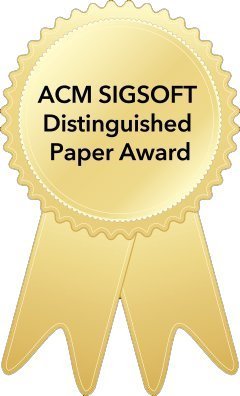Do I Belong? Modeling Sense of Virtual Community Among Linux Kernel Contributors
A sense of belonging to a community is a basic human need that impacts an individual’s behavior and long-term engagement and job satisfaction, as revealed by research in disciplines such as psychology, healthcare, and education. Despite much research on how to retain developers in virtual, peer- production communities such as Open Source Software (OSS), there is a paucity of research investigating what might contribute to a sense of belonging in OSS communities. To that end, we develop a theoretical model that seeks to model the link between developer motives and Sense of Virtual Community (SVC). We test the model with a dataset collected in the Linux Kernel developer community (N=225), using structural equation modeling techniques. Our results show that intrinsic motivations (social or hedonic motives) are positively associated with a sense of virtual community, but living in an authoritative country and being paid to contribute can reduce the sense of virtual community. Finally, we offer suggestions for open source projects to foster a sense of virtual community, with a view to retaining contributors and improving projects’ sustainability.
Wed 17 MayDisplayed time zone: Hobart change
11:00 - 12:30 | Cognitive aspects of software developmentNIER - New Ideas and Emerging Results / Journal-First Papers / SEIS - Software Engineering in Society / SEIP - Software Engineering in Practice / SEET - Software Engineering Education and Training / Technical Track at Meeting Room 109 Chair(s): Nicole Novielli University of Bari | ||
11:00 15mTalk | Do I Belong? Modeling Sense of Virtual Community Among Linux Kernel Contributors Technical Track Bianca Trinkenreich Northern Arizona University, USA, Klaas-Jan Stol Lero; University College Cork; SINTEF Digital , Anita Sarma Oregon State University, Daniel M. German University of Victoria, Marco Gerosa Northern Arizona University, Igor Steinmacher Northern Arizona University Pre-print | ||
11:15 15mTalk | Cognitive Reflection in Software Verification and Testing SEET - Software Engineering Education and Training Kevin Buffardi California State University, Chico | ||
11:30 15mTalk | A Model for Understanding and Reducing Developer Burnout SEIP - Software Engineering in Practice Bianca Trinkenreich Northern Arizona University, USA, Klaas-Jan Stol Lero; University College Cork; SINTEF Digital , Igor Steinmacher Northern Arizona University, Marco Gerosa Northern Arizona University, Anita Sarma Oregon State University, Marcelo Lara Globant, Michael Feathers Globant, Nick Ross Globant, Kevin Bishop Globant Pre-print | ||
11:45 15mFull-paper | Designing for Cognitive Diversity: Improving the GitHub Experience for Newcomers SEIS - Software Engineering in Society Italo Santos Northern Arizona University, João Felipe Pimentel Northern Arizona University, Igor Wiese Federal University of Technology, Igor Steinmacher Northern Arizona University, Anita Sarma Oregon State University, Marco Gerosa Northern Arizona University Pre-print | ||
12:00 7mTalk | From Anecdote to Evidence: The Relationship Between Personality and Need for Cognition of Developers Journal-First Papers Daniel Russo Department of Computer Science, Aalborg University, Andres R. Masegosa Aalborg University, Klaas-Jan Stol Lero; University College Cork; SINTEF Digital Link to publication DOI Pre-print | ||
12:07 7mTalk | A Qualitative Study of Developers’ Discussions of Their Problems and Joys During the Early COVID-19 Months Journal-First Papers Gias Uddin University of Calgary, Canada, Omar Alam Trent University, Alexander Serebrenik Eindhoven University of Technology | ||
12:15 7mTalk | Interpersonal trust in OSS: Exploring dimensions of trust in GitHub pull requests NIER - New Ideas and Emerging Results Amirali Sajadi Drexel University, Kostadin Damevski Virginia Commonwealth University, Preetha Chatterjee Drexel University, USA Pre-print | ||
12:22 7mTalk | The risk-taking software engineer: A framed portrait NIER - New Ideas and Emerging Results Lorenz Graf-Vlachy University of Stuttgart Pre-print | ||